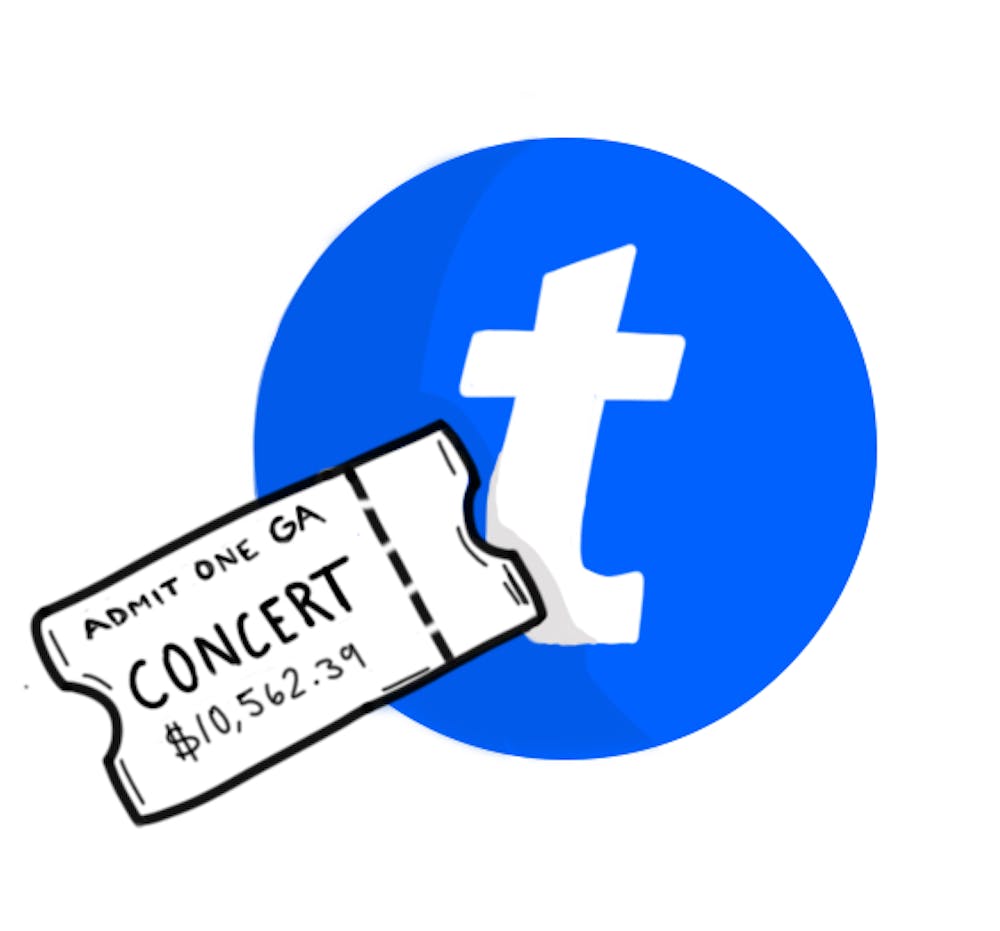As a result of the COVID-19 pandemic, live music shut down for nearly three years. In response, many artists hosted livestreamed events from their homes or with the help of sponsors. However, as the pandemic eased, artists began announcing tour dates again.
Almost everyone can remember the frenzy when Taylor Swift announced her “Eras Tour” in 2022. Her partnership with Ticketmaster and Capital One severely backfired, as fans experienced long queue lines, inflated prices and third-party vendors snatching tickets before they could even get to the online checkout.
Fans began to question why buying a concert ticket was so much harder than it used to be and whether the concert experience was even worth the cost. According to the Los Angeles Times, five key factors have contributed to this major problem: artists, promoters, concert venues, ticketing companies and ticket resellers.
Journalist Emma Fox explains that although promoters set ticket prices, they can easily lose money if certain shows do not sell enough tickets. Bigger artists like Swift usually control the pricing, but smaller artists are forced to work with venues to assign ticket prices. Venues, therefore, earn money from promoters to help put on live shows, and promoters are paid through ticket sales.
Additional costs like service fees, processing fees, delivery fees and facility charges can also be involved. Last year, the American Economic Liberties Project told The New York Times that 2023’s fees “added an average of 32%” to concert ticket prices.
The Wall Street Journal said SeatGeek’s average ticket prices had also doubled in the last five years, increasing from $125 in 2019 to $252 in 2023. This results from secondary ticket platforms allowing employees and bots to compete with fans for seats, creating less supply. A 2018 Government Accountability Office report said promoters feed tickets to brokers “to capture a share of higher secondary market prices without the reputation risk of raising an event’s ticket prices directly.”
Ticketmaster plays a huge role in this problem, as the site has been known to lock out potential ticket buyers during Verified Fan presales while allowing third-party vendors in instead. The company is also known for kicking fans out of online queues and removing fans even after selecting tickets.
After the chaos associated with Swift’s tour, two dozen fans filed lawsuits against Live Nation Entertainment, Ticketmaster’s parent company. The U.S. Justice Department launched an antitrust investigation against Live Nation Entertainment, and Ticketmaster posted an apology to fans. The company blamed the incident on a “historically unprecedented demand.”
Beyond ticket vendors rigging the ticket-buying process, fans also question the ethics behind the live concert experience. According to The Wall Street Journal, the average price of a resold Swift ticket on SeatGeek was $1,311, while Beyoncé and Springsteen tickets launched at $480 and $469, respectively. Alarmingly, Insider found that Swift’s tickets soared to nearly $13,000 on StubHub. Bloomberg also found that resellers sold tickets for Adele’s Las Vegas residency for up to $40,000.
Concert attendees have also raised concerns over long lines, unsafe fan behavior and a lack of food and water. At many of Swift’s shows, fans have passed out from a lack of water and intense heat. On Nov. 17, 2023, 23-year-old Ana Clara Benevides died at Swift’s show in Rio de Janeiro due to heat exposure.
Fans were also hurt at a Louis Tomlinson concert in Colorado in June after a hailstorm forced fans to seek immediate shelter. Seven people were taken to the hospital, and up to 90 people were injured with broken fingers and hands.
Beyoncé’s “Renaissance Tour” was also subject to long lines, with many fans queuing outside a venue for over 12 hours in Sunderland, England, in extreme heat. One fan told Yahoo Life that fans had been “herded like cattle into these pens” with virtually no shelter to wait under while exposed to the harsh sun.
One of the most upsetting concert incidents of recent years was Travis Scott’s “Astroworld” festival in Houston on Nov. 5, 2021. Before and during the show, fans were crushed against one another. The rapper continued the show despite NRG Park’s security warnings that fans could be injured and 10 minutes in, after reports of serious injuries, the show stopped. 10 people did not survive.
Since the devastating live experience, many fans and their families have filed lawsuits against Scott, and the rapper underwent a police investigation two days after the festival. The rapper told officers he was unaware that his fans were being hurt, and would’ve stopped the show sooner if he had noticed anything.
Scott was not charged with any wrongdoing after the investigation. According to Business Insider, some of the lawsuits against the rapper have been settled, but he is set to appear in court on May 6 to face other charges, including those for physical injuries and emotional distress.
After the incident, many artists have attempted to make their concerts safer. Artists like Paramore and Billie Eilish have stopped concerts after fights broke out or people started to pass out. However, it doesn’t seem like fan behavior has gotten any better, with many incidents of people throwing items on stage.
While the live experience has changed dramatically since COVID-19, fans, especially of artists with loyal followings, will continue to invest their time and money into live shows. It will be interesting to see how live music continues to change throughout the next few years as inflation increases, but for now, it seems like fans are willing to take these risks as long as their favorite artists continue to perform.






